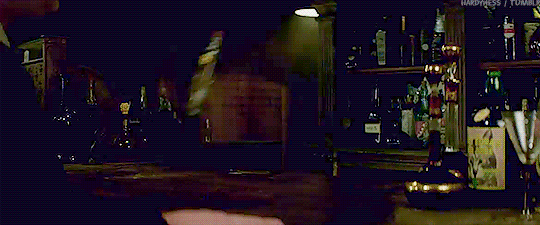The United States of America: The Land of the Free House-Elf?
While watching Fantastic Beasts: The Crimes of Grindelwald for the second time, my attention was unexpectedly drawn to the issue of house-elf rights.
In the Harry Potter books, house-elves had been brainwashed to work as slaves. Through Dobby, Winky, and Kreacher’s behavior, we see how inhibited their personalities had become under wizard rule. Their sense of individuality was squelched by generations of servitude and their masters’ wishes. Even Dobby, the free elf who demanded pay, could barely whisper a contradictory remark against his previous masters, the Malfoys.
In contrast, American house-elves during the 1920s seemed much more sure of themselves. Jacob Kowalski’s interaction with the house-elf in the speakeasy showed us a confident elf who wasn’t afraid to contradict a wizard or deliver sassy retorts: “What, ain’t you ever seen a house-elf before?” (FBaWtFT)
Crimes of Grindelwald features a house-elf in a dirty pillowcase who packed up the circus. The portrayal of elves was vastly different between the first and second Fantastic Beasts, the second taking place in Europe. The elves in Crimes of Grindelwald didn’t speak and were only shown performing menial tasks such as window washing or cleanup. Unlike the previous film, characters failed to acknowledge their existence.
House-elves were still considered a part of the lower class in America, but were they free? Did they have more rights than their British counterparts? The grumpy house-elf in the speakeasy indicates that elves in America were at least encouraged to think for themselves. One has to wonder, are house-elves even permitted to polish wands in England? Winky was treated horrendously by the Ministry of Magic for simply picking one up. Even if America wasn’t quite progressive enough to free elves, they were closer than Europe. Did the respected role of Pukwudgies at Ilvermorny help cultivate more tolerance in American society for elves? They may have regulated wizard-muggle relations, but American wizards may not feel as threatened by intelligent species that wield magic. Goblins were integrated into society as well, whether as bell boys, mob bosses, or elevator operators.
One has to wonder why wizards started the detestable practice of subjugating house-elves. Goblins fought back, but perhaps the house-elves’ nurturing nature betrayed them. Wizards didn’t simply desire servants; they were jealous and felt inferior by the powers these sensitive creatures held. With the right education and freedom to explore, house-elves could become equally powerful to wizardkind – maybe more so.
House-elves can travel, conjure, and levitate without the use of a wand. Their power isn’t restricted to a piece of wood. Even though they’re seriously oppressed (at least in Europe) and oftentimes abused, they’re deeply in touch with their magic despite a lack of training and confidence. Imagine what house-elves could achieve if they had their own schools and studied the realms of house-elf magic; their skills could be formidable. Will we see another house-elf, like Dobby, make a difference in Gellert Grindelwald’s war? He does tend to underestimate “simple” creatures that Newt Scamander befriends.




